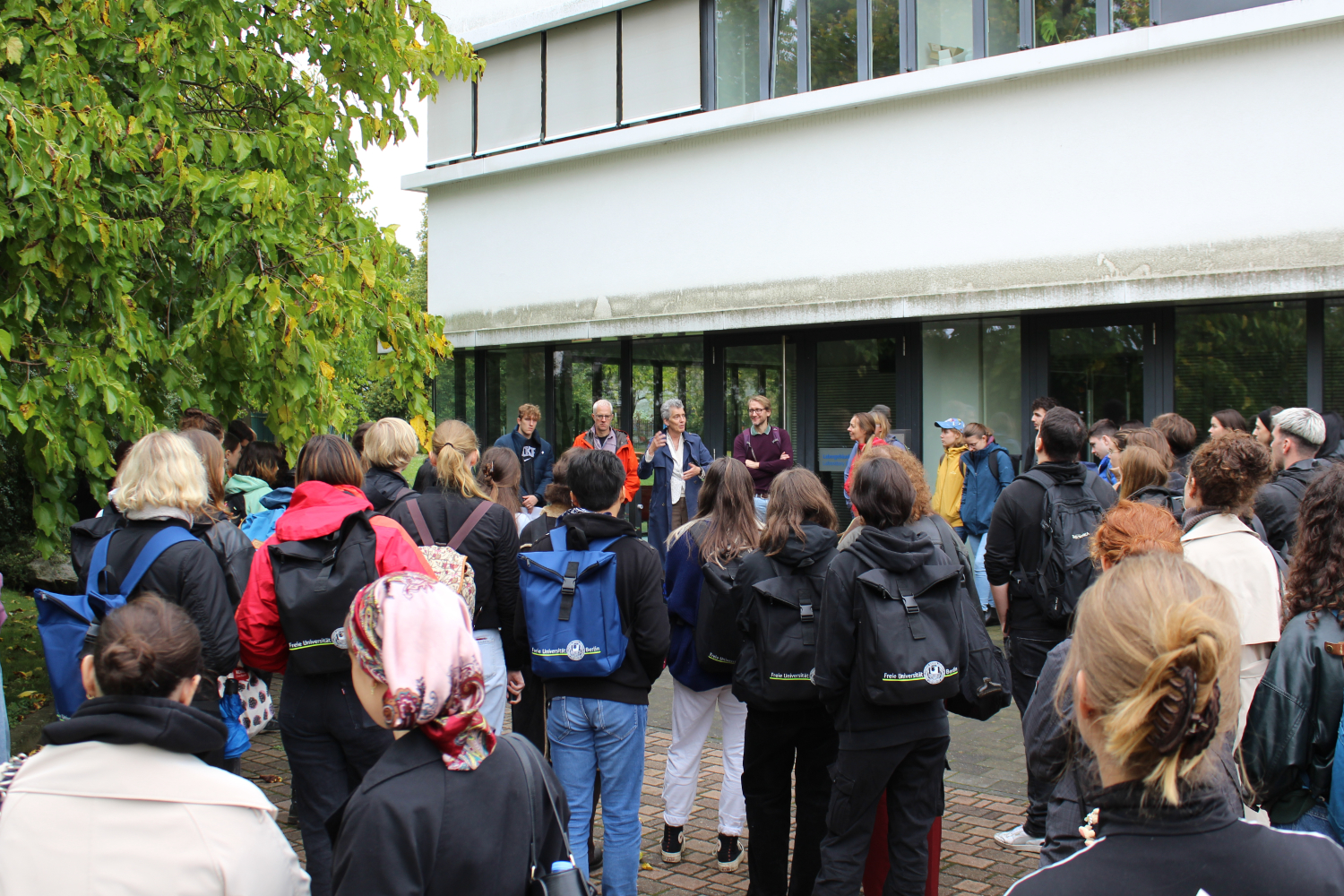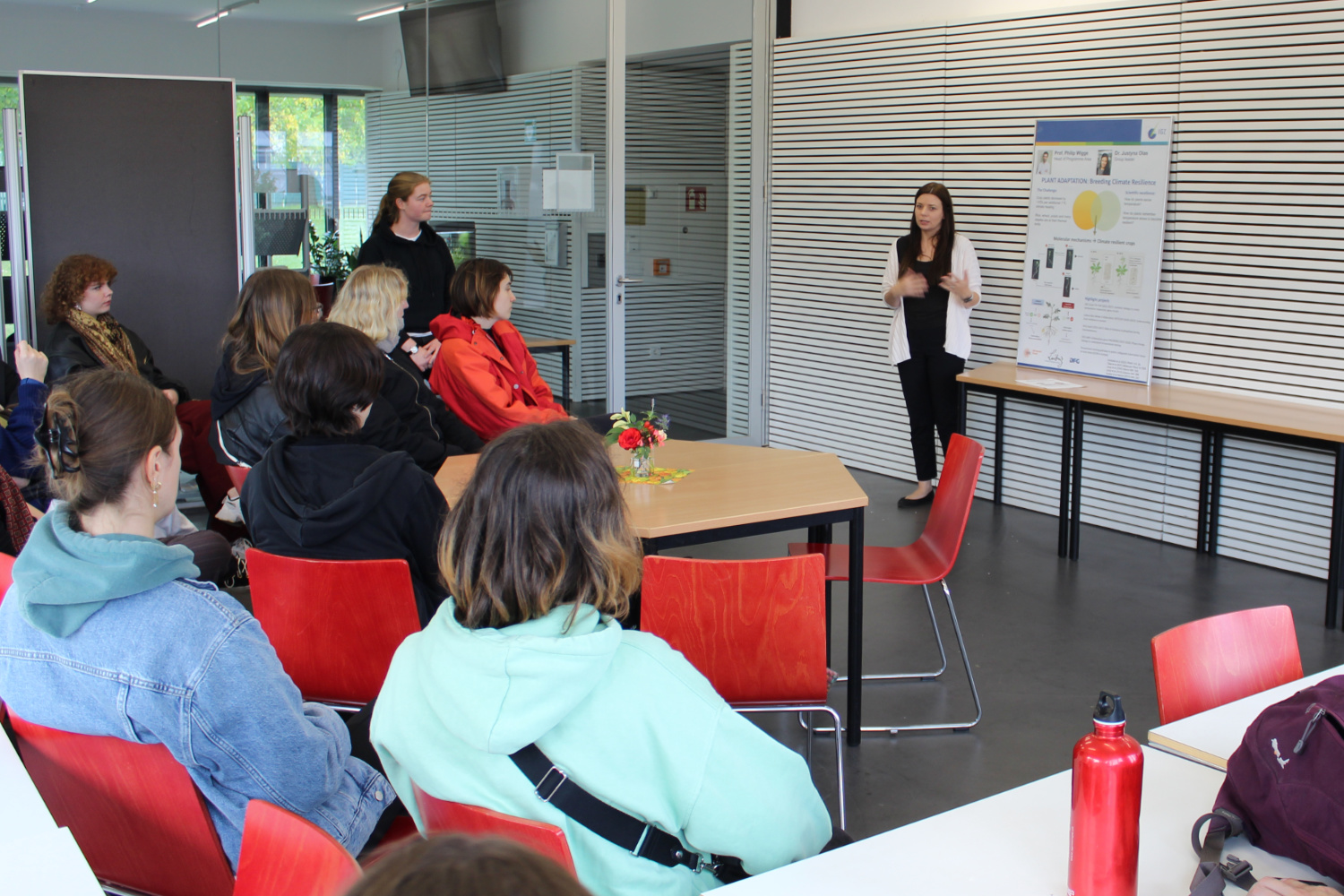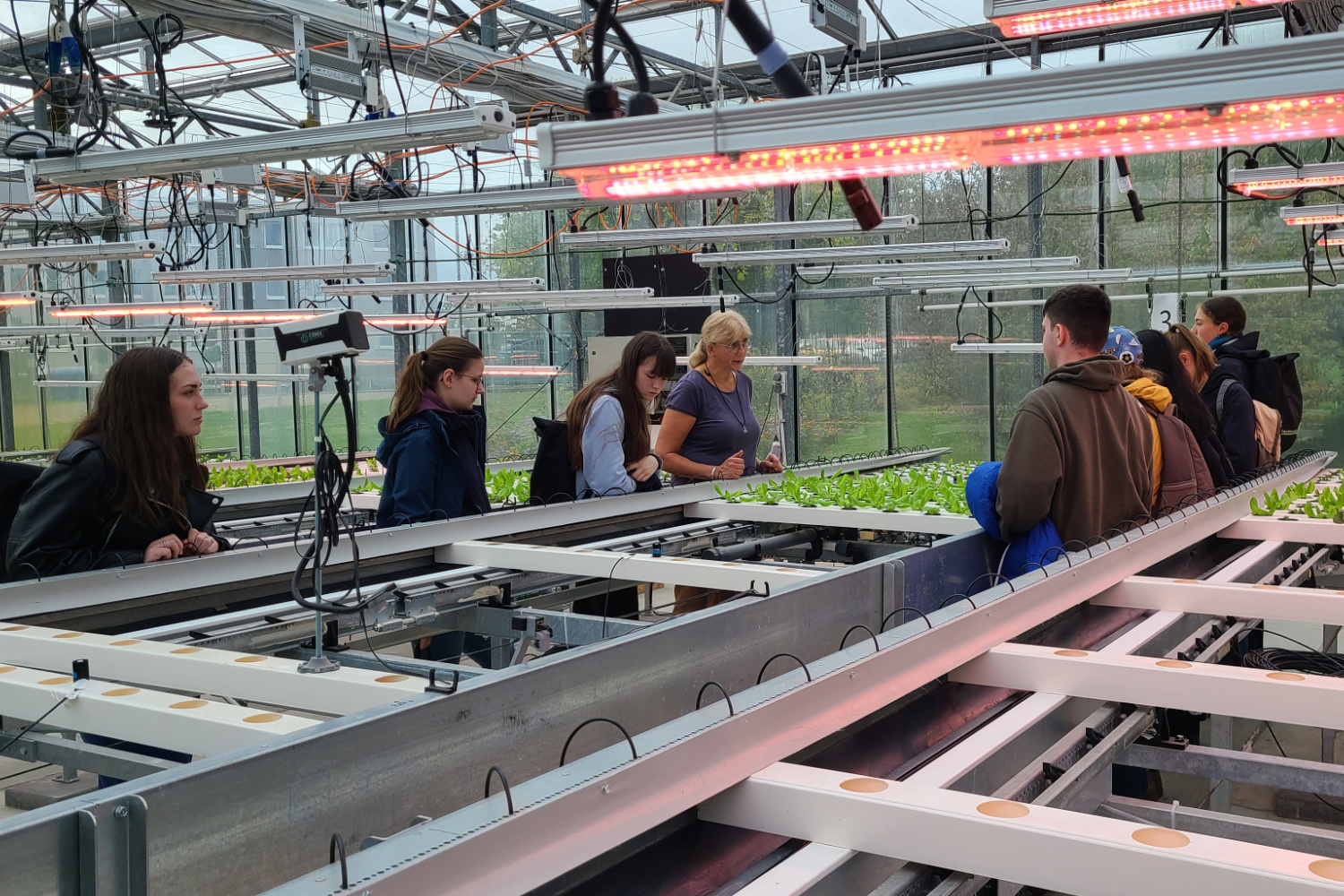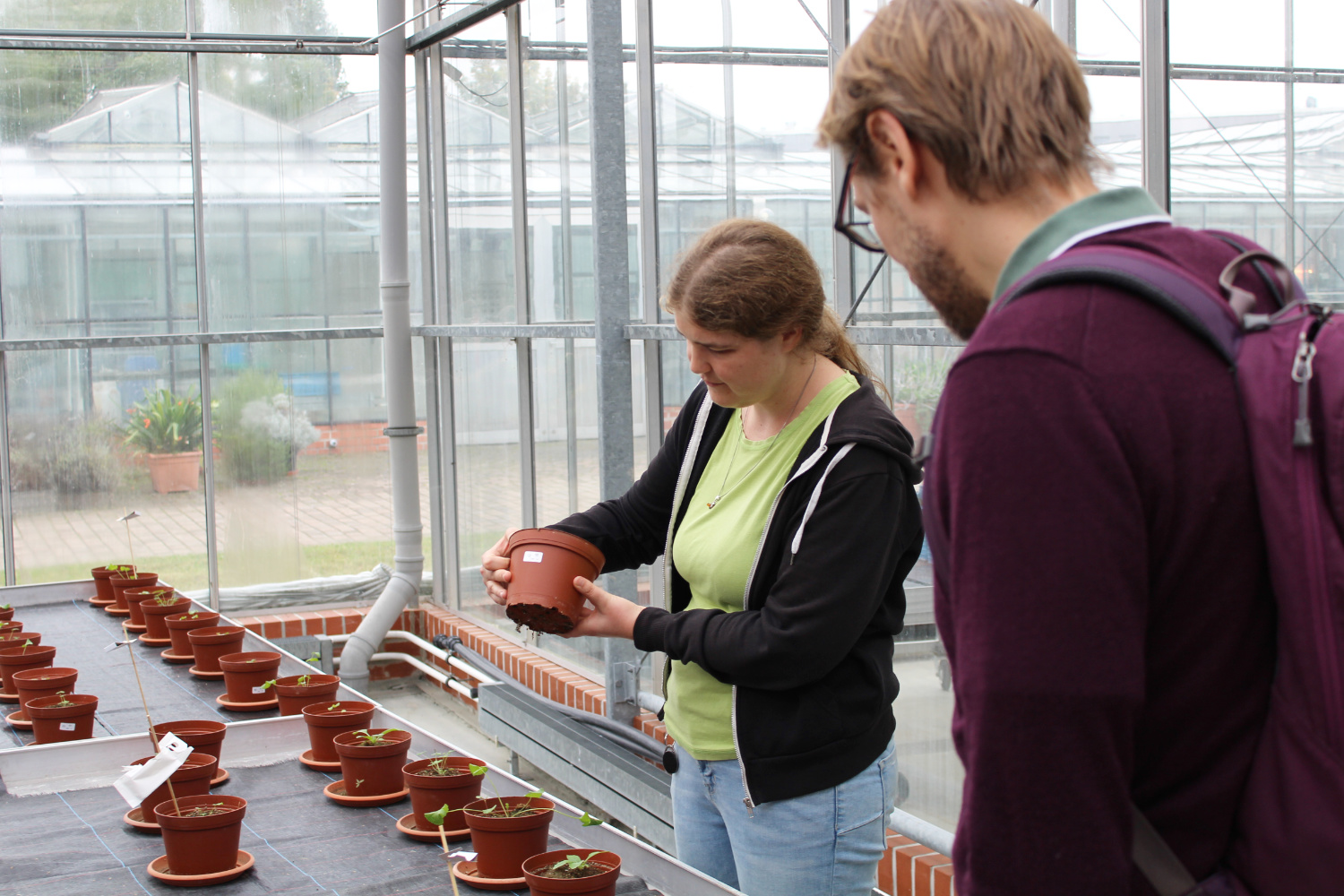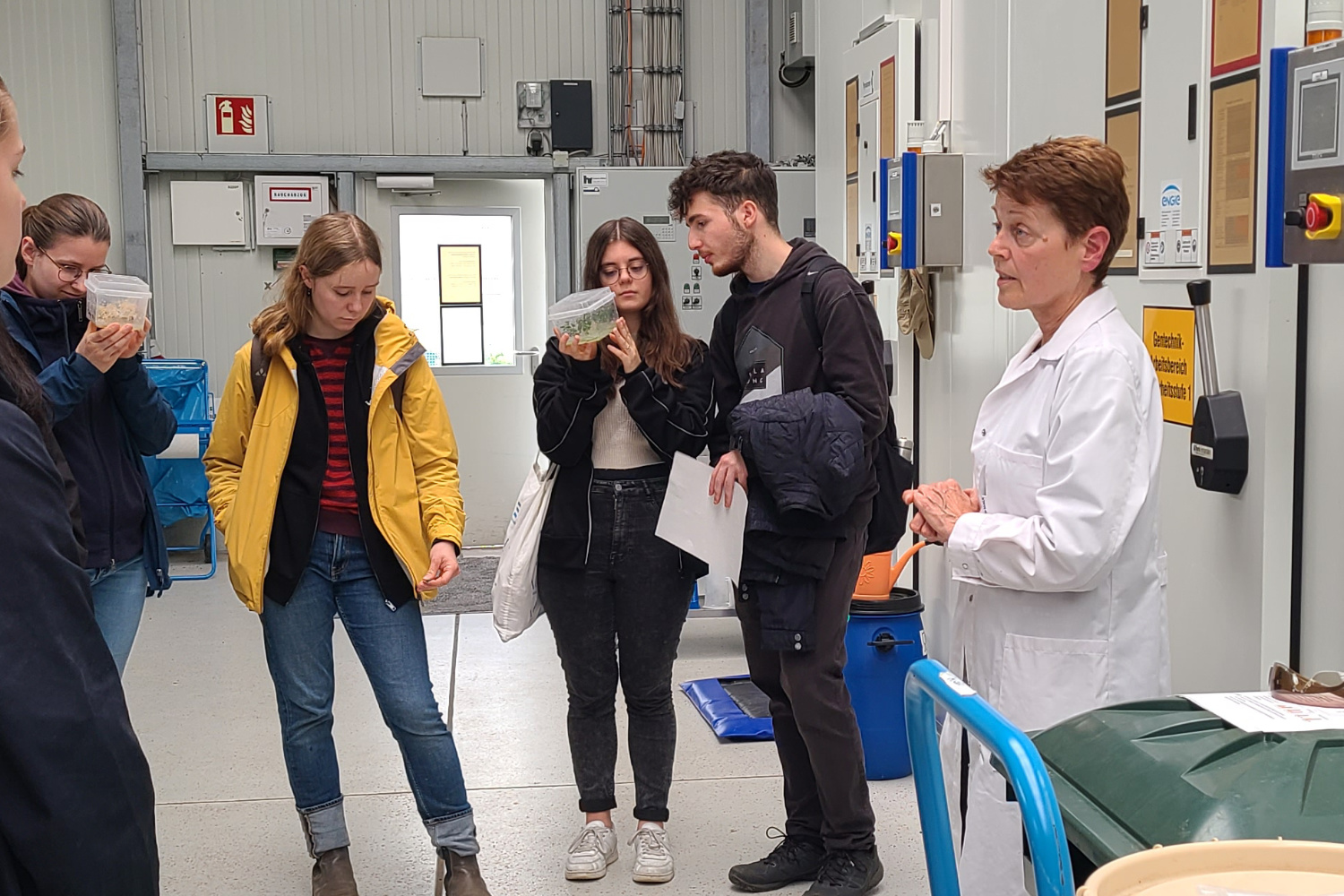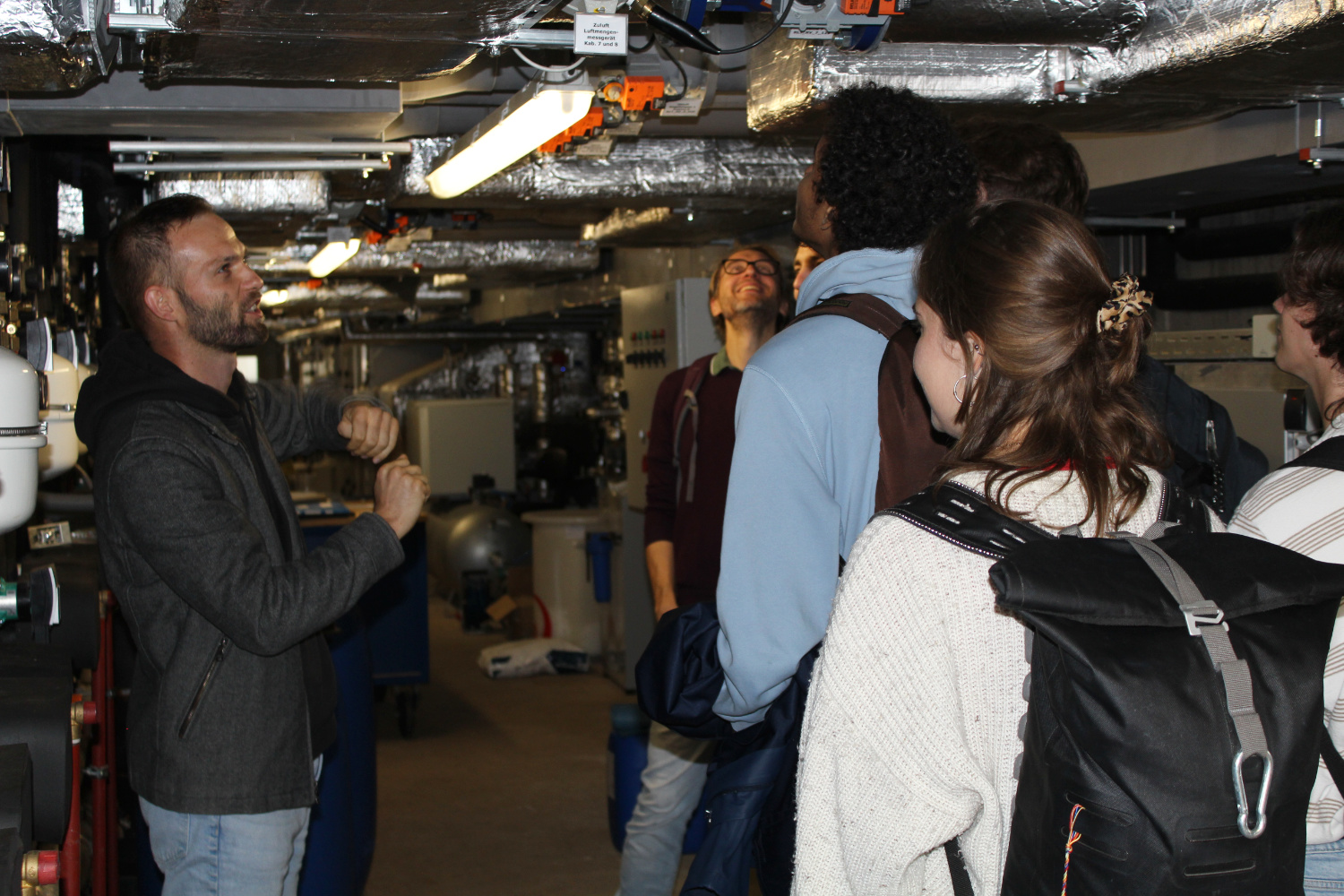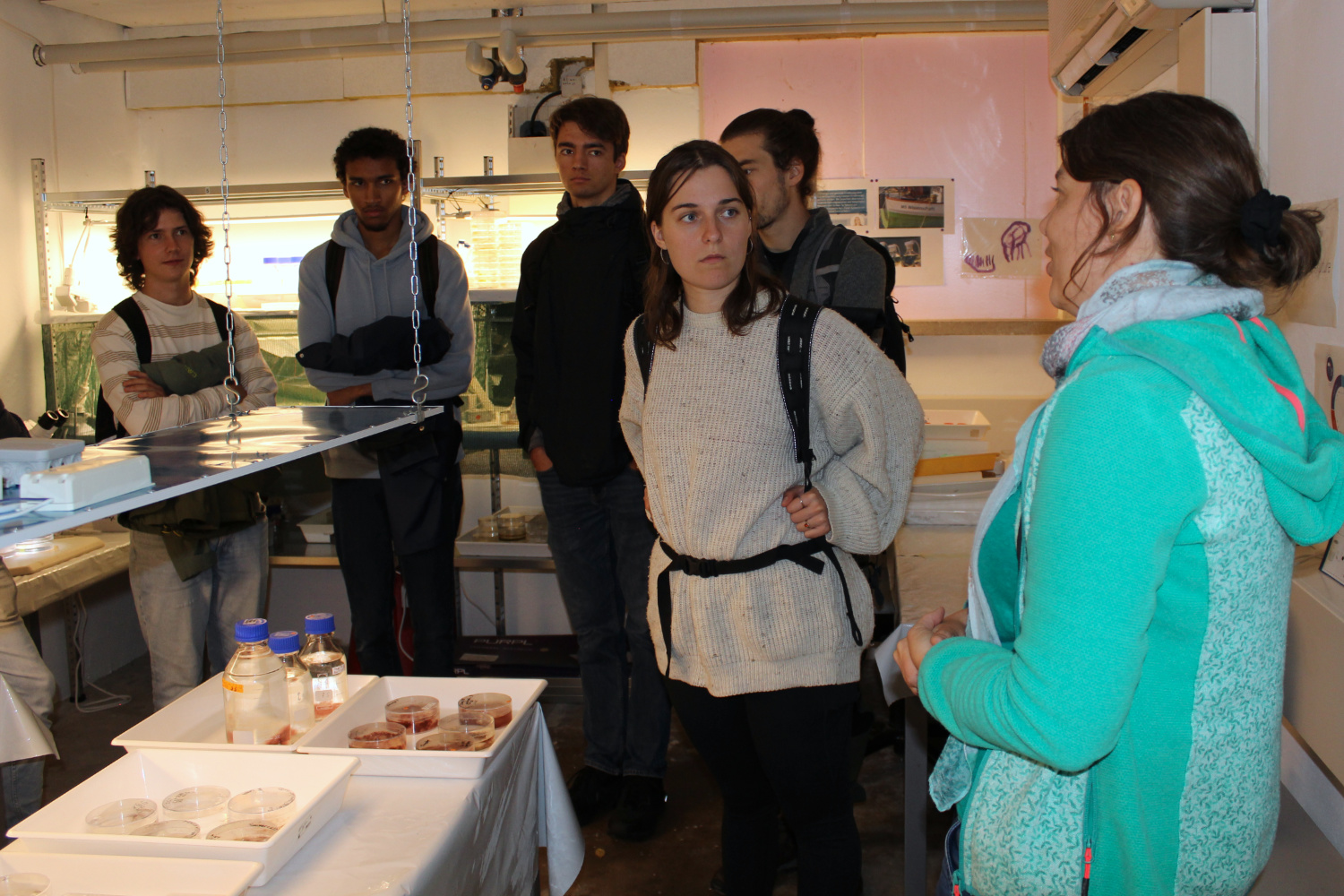A look behind the scenes: First-semester students of Free University visit the IGZ
After the scientific director Prof. Nicole van Dam welcomed the 100 guests, they went in small groups to the stations in the greenhouses, the climate chamber hall and the laboratory building.
First, Prof. Philip Wigge and Dr. Justyna Olas-Apelt presented their work on the question of how plants perceive temperatures to enable climate-resistant crops in the long term. On the next floor, Dr Franziska Hanschen and Dr Paula Bueno presented the comprehensive platform for analysing plant metabolites, which is used to identify and determine the concentration of mustard oil glycosides and their health-promoting degradation products from cabbage vegetables, for example.
In the practical greenhouse, Angela Schmidt explained the function of a movable gutter system for the resource-saving cultivation of lettuce. Experiments on the resilience of native wild plants were presented by PhD student Melanie Hanser in the cabin greenhouse.
Other infrastructures and how they are used for horticultural research were shown by Dr. Rita Zrenner as well as Thomas Runge: In one of the walk-in phytochambers, an experiment is taking place to analyse the interactions of potatoes with a fungus. In the gas exchange greenhouse, up to seven environmental gases can be selectively added and the gas exchange above and below ground can be recorded. For example, the effect of urban pollution or atmospheric changes due to global warming can be simulated and analysed.
Finally, Dr Anna Fricke took the students into the temperature-controlled macroalgae laboratory and spoke about the potential of "sea vegetables".
